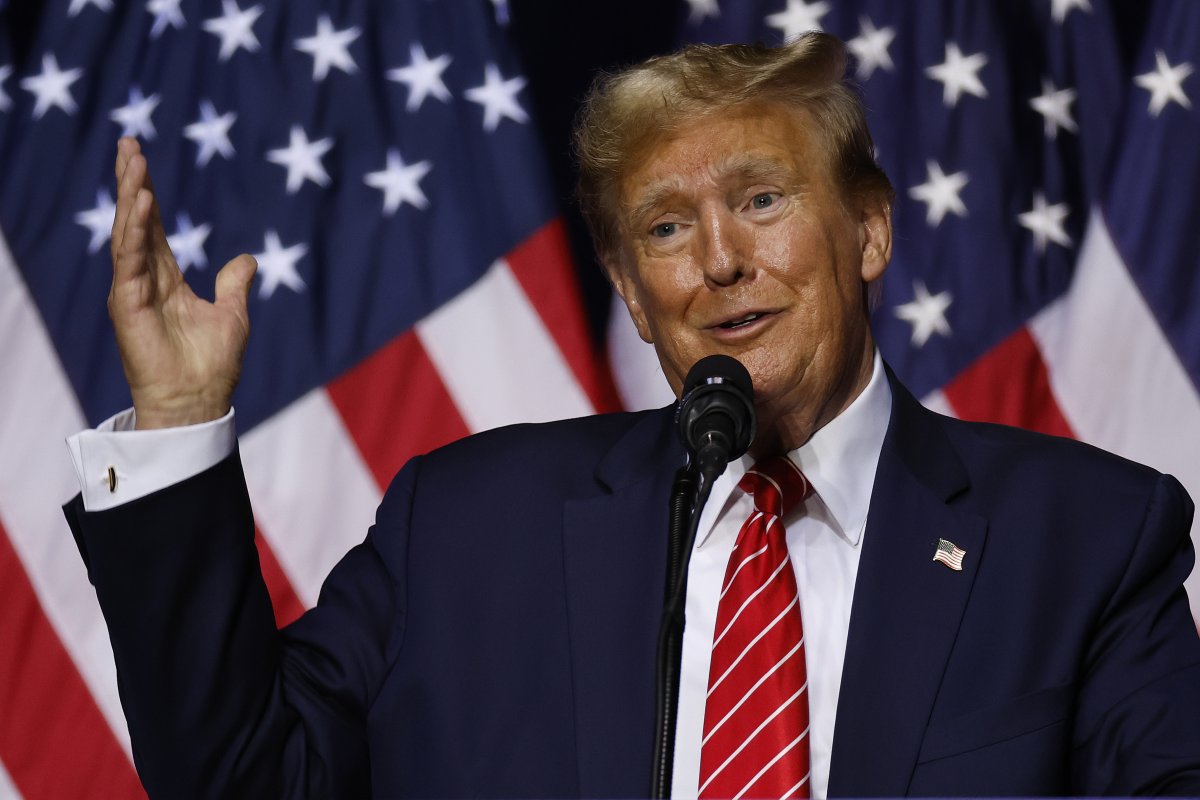Aadil Brar
China's foreign ministry has accused the U.S. of "spreading rumors" in response to a recent revelation about former President Donald Trump authorizing a covert influence operation targeting Beijing.
"Concocting and spreading rumors will only get one lose credibility faster. Spreading disinformation cannot inhibit China's progress but will only discredit the U.S.," Chinese foreign ministry spokesperson Wang Wenbin said during the daily press briefing on Friday.
Newsweek contacted China's Embassy in Washington, D.C., which pointed to the official response of China's foreign ministry in a reply to the email.
"It has also once again shown that the U.S. has spread China-related disinformation in an organized and well-planned way for a long time and it's America's important approach to wage a battle of perception against China," Wang added in the statement.
China's response comes as Reuters reported on March 14, citing former U.S. officials, that Trump in 2019 authorized the Central Intelligence Agency (CIA) to launch a covert campaign on Chinese social media to turn domestic Chinese public opinion against its government.
The U.S. has classified China as a long-term strategic threat as Beijing seeks to reshape the Washington-led international order by undercutting its influence. The strategic competition between the U.S. and China now spans the globe as the two sides have used economic and political statecraft tools to counter each other's geopolitical influence.
"Three former officials told Reuters that the CIA created a small team of operatives who used bogus internet identities to spread negative narratives about Xi Jinping's government while leaking disparaging intelligence to overseas news outlets. The effort, which began in 2019, has not been previously reported," Reuters reported.
Former U.S. officials told Reuters that the goal of the 2019 authorization was to create paranoia within the Chinese government through an influence campaign on Chinese social media.
"We wanted them chasing ghosts," one former U.S. official told Reuters.
The campaign sought to frame the top Chinese leadership as corrupt and dubbed China's mega infrastructure project, the Belt and Road Initiative, as a wasteful effort, Reuters reported, citing sources.
The Belt and Road Initiative (BRI) is China's massive infrastructure project that has provided financial assistance for roads, bridges, and ports to countries worldwide. The U.S. believes the rationale behind China's BRI financial assistance was to replace U.S. long-held geopolitical influence in all corners of the globe.
The officials described the extensive nature of the influence campaign, which sought to reshape public opinion against China in Southeast Asia, Africa, and the South Pacific.
"The feeling was China was coming at us with steel baseball bats and we were fighting back with wooden ones," a former national security official told Reuters.
 Republican presidential candidate and former U.S. President Donald Trump addresses a campaign rally at the Forum River Center on March 09, 2024, in Rome, Georgia. China has accused the U.S. of spreading rumors amid reports... MoreCHIP SOMODEVILLA/GETTY IMAGES NEWS/WIREIMAGE
Republican presidential candidate and former U.S. President Donald Trump addresses a campaign rally at the Forum River Center on March 09, 2024, in Rome, Georgia. China has accused the U.S. of spreading rumors amid reports... MoreCHIP SOMODEVILLA/GETTY IMAGES NEWS/WIREIMAGETrump is now seeking reelection in the upcoming presidential race in November and has suggested he will take an even tougher approach toward Beijing if re-elected.
Newsweek contacted Trump's campaign team for comment.
Covert influence operations were a feature of the Cold War era when the U.S. planted news articles to undermine the Soviet Union, Loch Johnson, a political scientist at the University of Georgia, told Reuters.
Experts who study intelligence history told Reuters that Trump's 2019 presidential finding order could still be in place under the Joe Biden administration, as subsequent administrations would need to continue implementing the presidential order.
Reuters couldn't confirm whether the Biden administration had continued the secret operation.
No comments:
Post a Comment